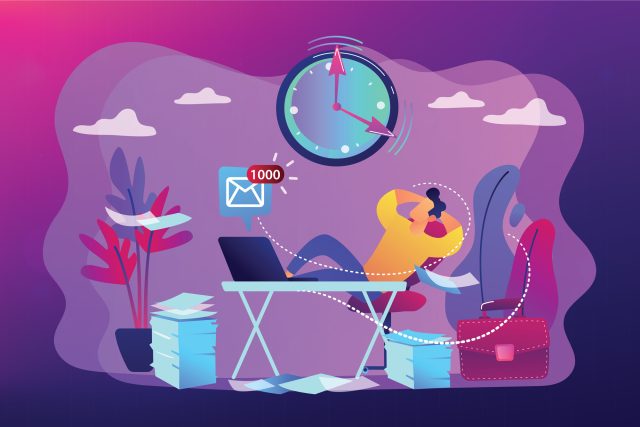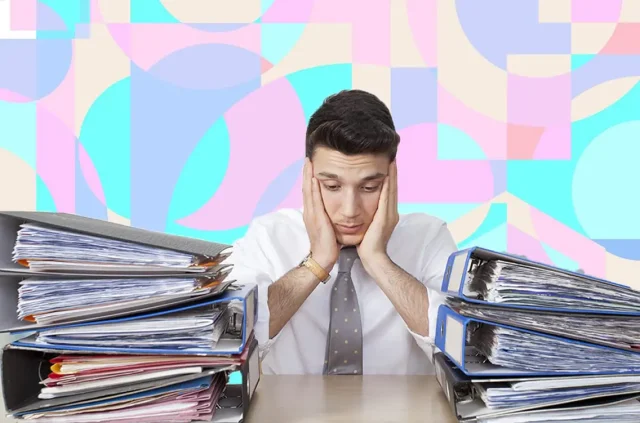
Procrastination is the act of postponing tasks to only work on them until the last minutes and sometimes even past their deadline. Every person is susceptible to procrastination. Every person has at least avoided work or important tasks and instead focused on trivial pursuits like watching TV, surfing the internet, or playing games. Procrastination can be caused by a lack of prioritization, lacking motivation, or just simply forgetting. In hindsight, it is commonly correlated to being lazy or incompetent, but the science behind it is much more complicated than that.
According to scientific research, procrastination occurs when the limbic system of one person is significantly stronger than the prefrontal cortex. The prefrontal cortex is a part of the brain that is in charge of making plans and making decisions. When the prefrontal cortex is weaker than the limbic system, the brain tells the body to do other things rather than more rational ones.
What are the negative effects of procrastination?

Procrastinating makes people lose one major thing that cannot be taken back: TIME.
Time is priceless. Delaying a task until the last minute means that a person has wasted time up until that exact moment. Being stagnant for the entire while until fear and anxiety kick in that force a person to do the task that should have already been done a while ago.
Aside from time, there is a huge risk of not meeting the goals that were set in the first place. Deadlines are placed for a reason and procrastinating on a would either risk quality or not even meet the deadline at all. With limited time, poor decisions can also be made leading to a domino effect of negative circumstances.
People who procrastinate normally overestimate the time needed to do certain things. The right time frame normally is the allotted time for the task and doing it last minute can drastically affect the outcome. Things sometimes might get too much to handle for a certain person, like timelines, the amount of work, and the difficulty of the tasks. It isn’t like natural causes like heatwaves, read more about it on lordping.co.uk Certain activities and tasks may come with unpredictable factors that can delay certain things, it can be disastrous for people that are working with really important tasks or academics.
The negative effects can also affect the health of a person. Because of the lack of time to finish the task, the natural reaction to this is to speed run everything without rest until the task is done. Without much-needed rest, this can also affect both the quality of the task at hand and even physical and mental health.
How To prevent procrastination?
The first step to preventing procrastination is to discover why you are doing it in the first place. Knowing the reason can be a leap forward in curing it.
Being overwhelmed with tasks is a natural part of life, but sometimes this leads to not being able to do the task right away. Deadlines might scare people, but it is an essential part of overcoming procrastination. Dividing a task into small parts and creating goals, time frames, and deadlines for each part can surely help in completing the task as a whole.
Setting up a reward system for each small part of a task can also help in terms of accomplishing goals on time. Be it food or small purchases, rewarding oneself can be a form of self-support and can help one veer away from procrastination.
It may also be difficult, but limiting oneself from distractions such as phones, TV, or the internet can be very beneficial. Finding oneself scrolling through unnecessary things instead of doing the task at hand may be a thing that everyone has experienced before but making sure that one is not distracted can help with one’s efficiency and output. Know the importance of each task to weigh the timeframe that’s needed for accomplishing them. Set primary and secondary tasks and rank them according to importance.

Do not forget to take breaks. Sometimes a breather can help a person break through procrastination as taking breaks gives a person time to think. Take deep breaths, think about the importance of the task, and make sure to always track the amount of progress. Tracking progress helps a person keep track of the progress and the amount of work that still needs to be completed. Being aware definitely helps with knowing how much time is needed to complete a certain goal
Another thing is gaining more knowledge about a certain task. Doing something that one is not an expert on may be a challenge, but with enough knowledge about a certain topic, it would be easier to do the task at hand. Seeking training might be able to alleviate certain worries or thoughts that lead to not finishing the task right away. Being fully knowledgeable about a task can significantly reduce the time to work on it.
Negative thoughts also take a toll on a person. Thoughts are powerful and can change the entire mood and landscape of the situation. With a clear mind and a positive attitude, it is much easier to finish work. Putting one’s mind into something, although the level of difficulty may vary from one person to another, having a positive outlook can still factor in to the duration of time of getting things done.

Accepting tasks can be tiresome at times, and sometimes people accept tasks that they are now fully capable of doing. Some tasks may require extensive knowledge and skill on things and it should not be a shame to redelegate work. Sometimes people always feel the need to do everything themselves but this should not always be the case. Feel free to delegate the task to someone else that is more skillful on the task at hand instead of having trouble and wasting time doing it when not skilled on that particular task.
Procrastination is a common symptom of depression, anxiety, OCD, and/or ADHD. Finding oneself not being able to overcome this despite multiple efforts of making everything better. Make sure to consult a professional to properly diagnose one’s mental health. Knowing that there is something wrong and accepting it is the first step to doing something right. If symptoms worsen, consulting a medical professional would definitely be the best option to go about.









